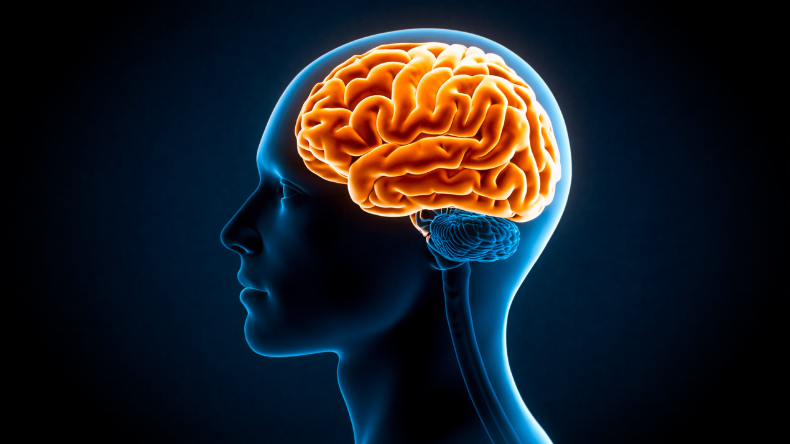What Are The Benefits Of Doing Puzzles Daily?
Discover how puzzles boost memory, reduce stress, and improve focus with just a few minutes of fun daily.
Mar 31, 20251.3K Shares34.8K Views

Daily puzzle solving has become a popular habit for people of all ages. Whether it’s jigsaw puzzles, crosswords, or logic games, puzzles offer a healthy and fun way to pass time. In a world filled with screens and constant noise, many are turning to puzzles for calm and mental clarity.
Studies show that puzzles help train the brain. They support memory, focus, and problem-solving—skills that are useful in daily life. People also enjoy the peaceful, screen-free time puzzles provide. It’s a quiet activity that reduces stress while keeping the mind active.
Puzzles are now part of many daily routines. Kids use them for learning, adults for focus, and seniors for brain health. No matter your age, solving puzzles every day can bring small but meaningful mental benefits. This article explores how and why.
Boosts Brain Power And Mental Sharpness
Doing puzzles daily is proven to support brain health. According to Harvard Health Publishing, activities like puzzles stimulate both sides of the brain—logical and creative. This helps improve memory, attention, and problem-solving skills over time.
Puzzles also strengthen short-term memory. When solving a puzzle, the brain recalls shapes, colors, and patterns. This regular mental exercise keeps the mind alert and sharp. A study published in Frontiers in Aging Neurosciencefound that seniors who did puzzles regularly had better brain function compared to those who didn’t.
Experts also link puzzles to better problem-solving. As the brain works through small challenges in each piece or clue, it learns to think more clearly and make better decisions. This benefit is valuable for both young adults and older individuals.
For seniors, puzzles may help slow cognitive decline. The Alzheimer’s Association recommends puzzles as part of brain-healthy habits, alongside physical activity and social engagement.
Daily puzzle solving doesn’t just pass the time—it actively trains your brain to stay sharp, focused, and strong.
Reduces Stress And Improves Mood
Puzzle-solving helps the brain relax:
When you focus on solving a puzzle, your brain shifts attention away from worries. This brings a sense of calm. It works like meditation—your mind stays busy, but in a peaceful way.
Puzzles create a “flow” state
A “flow” state means you are fully focused and enjoying the moment. Time passes without you noticing. You forget stress and just concentrate on the task. This state improves your mood and clears your mind.
Supports mental well-being
Solving puzzles can lower feelings of anxiety. It gives your brain something positive to do. People who solve puzzles regularly often feel more balanced and mentally refreshed.
Break from screens and daily stress
In today’s digital world, screen time causes eye strain and mental fatigue. Puzzles give your brain a healthy break. They are a screen-free way to relax, reset, and recharge.
Scientific support
According to a study published in Frontiers in Aging Neuroscience, engaging in mentally stimulating activities like puzzles can reduce stress and improve emotional health. These activities activate the brain's reward system, making you feel good while also calming your nerves.
Encourages Daily Discipline And Focus
Puzzles support a healthy daily habit
Solving puzzles daily can be part of a positive routine. Setting aside even 15–20 minutes a day builds structure. This regular activity trains your brain to stay committed and consistent.
Builds patience over time
Puzzles require careful thinking. You must look at the small pieces and figure out how they fit. This helps you become more patient. Over time, your brain learns not to rush, but to stay calm and keep working.
Improves attention to detail
Daily puzzle-solving sharpens your eye for detail. You start noticing small patterns, shapes, and colors more easily. This habit improves your focus, not just in puzzles, but in daily tasks too.
Boosts concentration
Focusing on a puzzle helps you block out distractions. The more often you solve puzzles, the stronger your attention span becomes. This can help with school, work, and even conversations.
Backed by research
A study in the journal Applied Cognitive Psychologyfound that people who regularly work on puzzles show better attention control and task performance. This means puzzles don’t just entertain—they help train the brain to stay focused.
Great For Family Bonding And Social Time
Encourages Quality Time Without Screens
Daily puzzle time helps families and friends step away from phones, TVs, and computers. It creates a peaceful break from digital noise. Everyone focuses on the puzzle and enjoys the moment together. This helps people stay present and connect better.
Builds Teamwork Across All Ages
Puzzles need cooperation. Adults, teens, and kids all bring something different to the table. Parents may spot patterns. Kids may notice colors faster. Working together builds respect for each other’s strengths. It teaches how to solve problems as a team.
Improves Communication Skills
While solving puzzles, people talk about pieces, shapes, and solutions. This encourages clear and helpful conversation. It also helps shy family members open up more. Talking during puzzles becomes natural, without pressure.
Creates a Relaxing Family Routine
Having a set puzzle time each day gives everyone something to look forward to. It becomes a calming daily habit. This shared routine can reduce stress and help build stronger family bonds over time.
Brings Generations Together
Grandparents, parents, and children can all join puzzle time. There is no age limit. This makes puzzles a rare activity that all generations can enjoy equally. It creates memories and brings stories, jokes, and smiles to the table.
Strengthens Patience and Focus Together
Solving puzzles takes time. It teaches patience, not just alone, but as a group. Family members learn to wait, listen, and support each other through challenges. This builds emotional support and deeper connections.
❓ FAQs
How Do Puzzles Improve Brain Function?
Puzzles help boost brain function by strengthening connections between brain cells. They improve problem-solving skills, memory, and logical thinking. Research shows that puzzles activate both the left and right sides of the brain, which supports mental sharpness.
Can Solving Puzzles Daily Help Reduce Stress?
Yes, solving puzzles can lower stress. Studies show that focusing on a puzzle calms the brain, similar to meditation. It helps the mind stay present and reduces anxiety. This makes puzzle time a healthy way to relax.
Are Jigsaw Puzzles Good For Seniors’ Memory?
Jigsaw puzzles support memory in seniors by keeping the brain active. Research from the University of Exeter and King's College London found that people who regularly do puzzles have better short-term memory and thinking skills.
What Types Of Puzzles Are Best For Daily Use?
For daily use, jigsaw puzzles, crosswords, sudoku, and logic puzzles are best. These types are simple to start and easy to continue every day. They offer brain stimulation without being overwhelming.
Does Doing Puzzles Every Day Improve Focus?
Yes, daily puzzles train the brain to stay focused for longer periods. They help improve attention span by requiring full concentration. This can help both adults and kids stay sharp in other tasks too.
How Much Time Should I Spend On Puzzles Daily?
Spending 15 to 30 minutes a day on puzzles is enough for mental benefits. This small amount of time helps improve brain health without causing fatigue or stress.
Can Puzzles Be Part Of A Mental Fitness Routine?
Yes, puzzles are a great part of a mental fitness routine. Just like physical exercise helps the body, puzzles keep the brain active and healthy. Adding puzzles daily supports long-term brain health.
Do Puzzles Help Kids With Learning And Development?
Puzzles support early learning in kids. They improve hand-eye coordination, shape recognition, and problem-solving skills. Studies also show they help with spatial skills and patience.
Is Puzzle-solving Better Than Mobile Games?
Puzzle-solving is often better than mobile games because it doesn’t rely on fast rewards or distractions. It improves focus and deep thinking. Unlike many games, puzzles are not overstimulating and support mental growth.
Are There Emotional Benefits To Daily Puzzles?
Yes, puzzles can improve mood. Completing a puzzle gives a sense of achievement. It also boosts dopamine levels, which are linked to feeling good. This makes daily puzzles helpful for emotional wellness.
Latest Articles
Popular Articles
